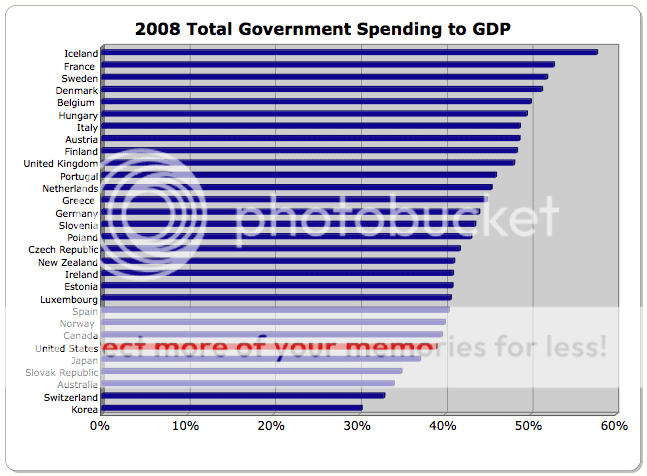- Thread starter
- #21
Note that almost all of those nations have socialized medical services.
Where does America score on that chart after a fascistic takeover of nearly 1/5 of the total economy, eh?
That is an exaggeration.
There is no country in the world where the entire healthcare industry is run or controlled by the state. Instead, the government is usually the primary and majority player in the industry and the private sector plays some but not a majority role.
For example, in Canada, about a quarter of healthcare services are private and healthcare accounts for 14% of the economy, meaning that 10.5% of the economy is government-sponsored healthcare. In America, government accounts for about 45% of total healthcare spending, which is about 18% of the economy, meaning that 8% of the economy already is government-sponsored healthcare, or a 2%-3% difference between the two countries.
For those wondering, the percentage of government spending in the economy in 2006 - the last year of the GOP controlled Congress - was 37%.


